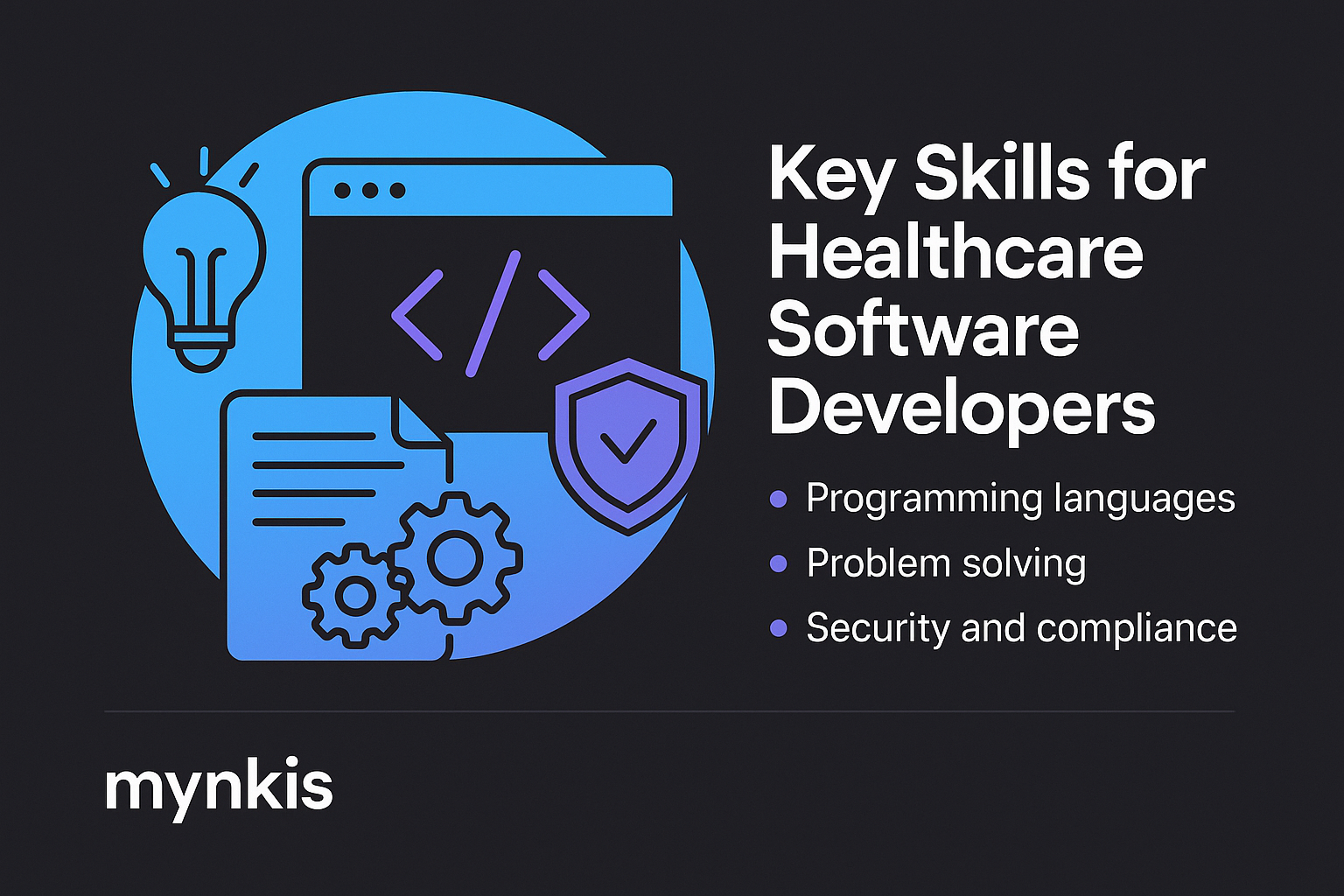Schedule a Demo
In my work with healthcare systems, I've seen the crucial role that robust, compliant software plays. The need for secure websites and comprehensive software solutions for patient portals and data management continues to grow. Whether you're managing a clinic or a large hospital, understanding the skills and keywords relevant to the software developers in your orbit can enhance both your service delivery and patient outcomes.
The healthcare sector presents a unique challenge for custom software development. Not only must the code be efficient and user-friendly, but it must also comply with strict regulations. In the field, I've encountered numerous instances where familiarization with standards like HIPAA, GDPR, or HITECH Act has made or broken a project. Any developer working within this space must keep these as the baseline of their skills to navigate the complex legal landscape, ensuring the privacy and security of patient data.
Developing secure code is table stakes for health enterprise web solutions. From strong encryption to secure API integrations, every line written can affect patients' confidentiality. I've consulted on multiple cases where failing to architect for security from the get-go led to downstream fallout, such as breaches or service disruptions, that could have been avoided.
On the technical front, proficiency in programming languages like JavaScript, Python, and SQL is essential for any healthcare software developer. In my discussions with tech leads, those who understood how to build resilient, scalable enterprise web solutions often turned to Python's Flask or Django for backend development. Java continues to be a powerhouse for those crafting large-scale, multi-tier applications. Keywords in résumés and job listings often highlight these languages.
Delivering a seamless user experience via the frontend of patient portals is no small feat. Reactive frameworks like React, Vue, and Angular, coupled with CSS mastery, separate the novice from the expert. My teams have consistently sought to leverage these technologies not just to meet compliance standards but also to create engaging user interfaces. Making sure the patient or clinician feels at ease while interacting with a portal is as much art as it is science.
Data management remains at the heart of effective healthcare operations. Skills in both relational databases like MySQL, PostgreSQL, and non-relational ones like MongoDB can give developers an edge. My projects have seen the power of a developer who can handle data migration with finesse, ensuring existing systems evolve with the care ecosystem's changing demands.
The migration to cloud platforms demands healthcare software developers maintain cloud literacy, be it Amazon Web Services, Google Cloud Platform, or Microsoft Azure. In my experiences, harnessing these ecosystems for scalability and robustness has proven instrumental. Developers equipped with such skills bring added agility to enterprise web solutions across hospitals and clinics alike.
Modern healthcare infrastructures thrive on interconnectivity. Creating or integrating with APIs securely allows disparate systems to communicate effectively. When consulting, I often stress the weight of a developer's ability to design RESTful APIs or master GraphQL. Such prowess molds the foundations for interoperable, yet finely granular patient care.
The initial euphoria of coding euphoria fades quickly if the software doesn't work as intended. Proficiency in writing testable code, harnessing unit testing, and extending this to integration and end-to-end tests can significantly improve product quality, which in healthcare is non-negotiable. I've pushed for cultivating these skills alongside debug-forceps artisanry because lives hinge on accurate diagnostics.
To adapt to the incessantly changing healthcare environment, teams employ agile and Scrum methodologies to deliver enterprise web solutions iteratively. My interactions have shown me how those with project management skills deftly navigate the choppy waters of product ownership and sprint planning, paralleling the agility healthcare requires.
The most engaging part about working on software tailored for health isn't always about the tech. Soft skills like communication, collaboration, and critical thinking rank highly on the priority list for healthcare teams. Effective coders in this space know when to converse with stakeholders, assimilating feedback to continuously refine the solution—making these interpersonal dynamics pivotal.
Helping healthcare professionals make informed decisions with data-driven tools requires knowing how to wrangle data into actionable insights. I've praised developers who dipped their toes in R or Python's Pandas and excelled in Power BI or Tableau, crafting visualizations so sharp that every clinician could slice through the noise to reach patient necessities.
As an onlooker of healthcare tech trends, mastering the dabble with AI, machine learning, IoT, or telemedicine-related technologies seems synonymous with staying relevant and innovative. While reality skews towards developing these for remote health monitoring or diagnostics, a developer's readiness to dive into freshly conceived waters must never be overlooked.
Understanding the spectrum of skills and staying clued into evolution in digital terminology shares a buoyant symbiosis with healthcare needs—critical to what happens at the actual place of care delivery. Staying steadfast with continuing education on these competencies might not win a developer grand accolades, but it will ensure more effective engagements where patients interact through layers of software covered in resilience, respect for privacy, and simplicity).
